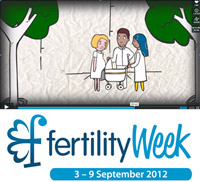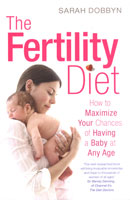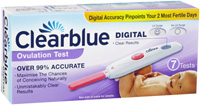Dr Sonya Jessup Demeter Fertility Interview

Dr Sonya Jessup Demeter Fertility Interivew
Infertility affects around one in six couples at a given point in their lives and for many trying to conceive, it can be a tough journey especially when it just isn't happening naturally. Dr Sonya Jessup from Demeter Fertility, who has also been through the IVF process herself, explains how to give yourself the best chance of conceiving by following these simple guidelines when you are trying for a baby.
Importantly, life is meant to be enjoyed. It may take quite a number of months or even years to conceive a baby, so it is important during this time to look after yourself and your partner and continue to have a normal and fun life. Those who are lucky enough to conceive easily continue to live a completely normal life right up to the point that the period is missed and a positive pregnancy test is done. At this point, women usually begin to follow the normal advice in pregnancy with decreased coffee intake, no alcohol and avoidance of unnecessary procedures, treatments or medications.
It is disillusioning for women who are taking longer to conceive to be told they shouldn't have a coffee in the morning, dye their hair or be able to have a glass of wine with dinner or when out socially. Month after month of stressing about changing every single aspect of life in order to improve conception chances, can in fact have the opposite effect as the relationship is put under strain. I strongly believe that couples are best to live a completely normal life together whilst they are trying to have a baby.
When a woman is having an IVF treatment cycle however, her chances of conceiving that month are obviously much higher than usual, and for couples in treatment, there are a few guidelines as to what is best to avoid.
Cut back on caffeine and alcohol. Whilst there are no problems associated with a cup of coffee or two a day, or a glass or two of wine, drinking in excess of five cups of coffee a day has been associated with a higher miscarriage rate. It goes without saying that getting blind drunk or taking other social drugs is a no no.
Worried about colouring your hair? While there is inconclusive research regarding use hair dye whilst trying to conceive or once you are pregnant, I advise my patients that it is completely appropriate to continue with all hair care up until the time you find out your pregnancy test is positive. Natural dyes such as Henna may be an option thereafter.
Beauty treatments such as injectables and laser treatments are best avoided in pregnancy, but can be used up until conception. Botox injections last in the body for up to three months, and so are best avoided in the 3 months before an IVF cycle.
We all know that smoking isn't good for fertility, so it's best to quit if you are trying to conceive. Smoking can also speed up age-related infertility, bringing on earlier menopause although if you quit early enough, you may be able to reverse the negative effects.
Remember that everyone's fertility journeys are different, and no two couples are the same. If you are concerned about how long it is taking to conceive, see a fertility specialist promptly to get sound advice and to ensure there are no major fertility concerns. With good advice you can increase your natural fertility substantially, and if a problem is identified, ovulation induction or IVF treatment can generally be started within a month or two.
For couples, remember that you are in a relationship with a person you love and want to experience all the wonders of having a child with. Nurture that relationship. No man wants to feel his importance has been reduced purely to sperm delivery! Be creative. Have fun. If you are doing an IVF cycle, sperm is only required on the day of egg collection with leaves the rest of the month where sex is just about the two of you again. You will rely on a strong relationship more than you can imagine when you have a baby, so be nice to each other.
For more information visit www.demeterfertility.com
Interview with Dr Sonya Jessup, Demeter Fertility
Question: Can you talk us through your IVF process?
Dr Sonya Jessup: At Demeter Fertility, we are strong believers in using lower doses of FSH in IVF cycles. This means less side effects but more importantly, better quality eggs and a better chance of conceiving in a fresh IVF cycle due to the lesser impact of artificially high hormone levels on the endometrium. Our cycles run over 1 month, using scans rather than blood tests to visualise the egg development and optimally time the trigger and egg collection. Ultrasound guided embryo transfer is used to ensure the embryo is placed in the best location in each woman's individual uterus. My personal IVF experience used these principles also.
Question: How do you think your experience helps you with your work at Demeter Fertility?
Dr Sonya Jessup: Understanding what both women and their partners go through has given me a new insight into IVF treatment. Personally, I found the physical side of injections, egg collections and transfers fairly easy to deal with, but like with so many others, found the emotional aspects to be more challenging.
Question: How did you change your diet and lifestyle when trying to conceive?
Dr Sonya Jessup: I continued to live my life normally during IVF treatments, except for reducing my caffeine intake to two coffees per day (yes I like coffee) I did not use any medications that were not necessary and avoided products containing Retinol. With regard to Botox....? well that would be telling wouldn't it! I also took a pregnancy formulated multivitamin with folic acid and iodine supplements included.
Question: When trying to conceive why do you suggest cutting out caffeine and alcohol?
Dr Sonya Jessup: Whilst there are no problems associated with a cup of coffee or two a day, or a glass or two of wine, drinking in excess of five cups of coffee a day has been associated with a higher miscarriage rate. It goes without saying that getting blind drunk or taking other social drugs is a no no.
Question: What foods do you suggest increasing in the diet when trying to conceive?
Dr Sonya Jessup: There are a number of fertility boosting foods that makeup a healthy, fertility friendly diet for couples trying to conceive:
Fresh Fruits and Vegetables - full of antioxidants and phytochemicals, fruit and vegetables help promote reproductive health. Brightly coloured and green leafy vegetables, such as broccoli are particularly important, as they are high in folate and magnesium. These are important nutrients that your body needs to host a suitable environment for a baby to develop, so aim for five big handfuls of a day.
Zinc is one of the most important nutrients for both female and male fertility. Oysters, lean red meat, and sunflower seeds are packed with zinc, which make them a perfect addition to a fertility-boosting diet. They are also full of protein, which is an essential part of any healthy diet.
The Good Fats - it is essential that people trying to conceive are getting enough of good fats in their daily diet intake including: monounsaturated, polyunsaturated and omega-3 fatty acids. These healthy fats can be found in nuts, avocado, seeds such as sesame and pumpkin, sardines and salmon. Include a serve of oily fish 2-3 times a week in your diet will help your body get the essential fatty acids that it needs to be healthy.
When trying to boost fertility through diet, it is important to get the right overall intake of protein, iron, complex carbohydrates and healthy fats through unprocessed wholefoods and a varied diet. Food from vegetables, fruit grains, lean meat and dairy will ensure a healthy balanced diet, and will help your chances of falling pregnant.
Question: Is it advisable to have beauty treatments (whether that be injectables, laser or hair colouring) when trying to conceive?
Dr Sonya Jessup: Beauty treatments such as injectables and laser treatments are best avoided in pregnancy, but can be used up until conception. Botox injections last in the body for up to three months, and so are best avoided in the 3 months before an IVF cycle.
Question: What are the effects of smoking when trying to conceive?
Dr Sonya Jessup: We all know that smoking isn't good for fertility, so it's best to quit if you are trying to conceive. Smoking can also speed up age-related infertility, bringing on earlier menopause although if you quit early enough, you may be able to reverse the negative effects.
Interview by Brooke Hunter
Have You Seen This?
MORE
- Midwife Cath Interview
- Colin Anson Interview
- Why Good Health is Essential to Increase Fertility
- 5 Beauty Products to Avoid When You are Pregnant
- Looking After You, Looking After Your Baby
- Andre Carvalho International Pregnancy and...
- NRL Player v Mums
- Safer Internet Day
- The Pink Elephants Support
- Edwina Sharrock Birth Beat Interview
- Make Mums Group Dad-Friendly








